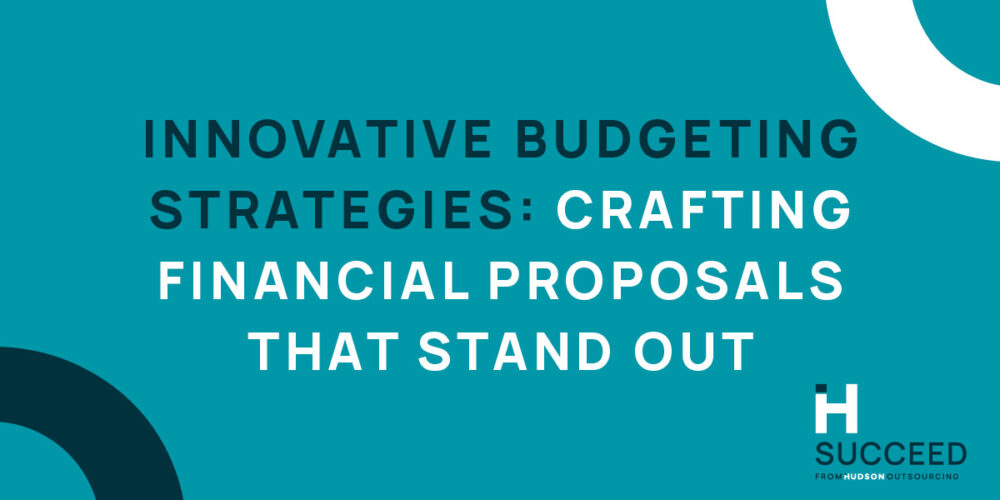
In today’s competitive bidding landscape, data-driven decision-making is more important than ever. Successful bids are not just about offering a good price or a strong technical solution—they are about showing that you understand the market, your client, and the competitive environment. To achieve this, market research plays a crucial role in shaping a compelling bid strategy. By transforming raw data into actionable insights, businesses can craft bids that resonate with evaluators and stand out from the competition.
The Importance of Market Research in Bid Writing
Before diving into innovative approaches, it’s essential to understand the core value of market research in the bid process. Market research equips your team with a deeper understanding of the client’s needs, industry trends, and competitors. Armed with this knowledge, you can tailor your bid to better align with the client’s pain points and objectives, offering solutions that deliver real value.
Here are some ways in which market research influences bid writing:
-
Client Understanding:
Market research helps uncover the client’s priorities, challenges, and future goals, allowing you to align your solution with their strategic objectives.
-
Competitor Analysis:
By understanding who you’re up against, you can position your offering in a way that highlights your unique value proposition while addressing any weaknesses in competitor solutions.
-
Industry Trends:
Identifying emerging trends ensures that your bid reflects the latest innovations and best practices, demonstrating that you are forward-thinking and prepared for the future.
Innovative Approaches to Market Research for Bids
While traditional market research methods such as surveys and industry reports still hold value, modern bid strategies require more innovative approaches to unlock deeper insights. Here are some cutting-edge techniques that can transform raw data into valuable intelligence for your bids:
-
Data Mining and Analytics
Modern technology offers powerful tools for extracting meaningful patterns from large data sets. Data mining can help you discover trends, client behavior, and market opportunities that you might otherwise miss. Using tools like machine learning and predictive analytics, bid teams can forecast industry changes and client needs with precision. For example, you can analyse past contracts and procurement decisions to predict what a client might prioritise in their next bid, giving you a competitive edge.
-
Sentiment Analysis
Sentiment analysis uses natural language processing (NLP) to analyse public sentiment about a client, competitor, or industry trend based on online discussions, reviews, or social media. By understanding how key stakeholders feel about particular issues or competitors, you can tailor your messaging to reflect positive sentiments or address any negative perceptions head-on. For example, if a potential client has received negative press over customer service issues, you can highlight your customer support capabilities as a key differentiator in your bid.
-
Social Listening
Social listening is the practice of monitoring online conversations to gain insights into what people are saying about your client, competitors, or industry. This allows you to identify the pain points that matter most to stakeholders and highlight your ability to address them. Social listening tools help you track mentions of keywords, competitors, and clients, revealing actionable insights that can shape how you structure and communicate your bid.
-
Competitive Benchmarking
To stand out in a crowded bid market, you must know where you stand in relation to your competitors. Competitive benchmarking involves comparing your company’s performance, pricing, or service offerings against industry leaders. Through detailed comparison, you can identify gaps in your own offering and understand where your competitors are weak or strong. Use this information to craft a bid that highlights areas where you outperform the competition.
-
Client-Specific Intelligence
Bespoke market research specific to the client in question can make the difference between a generic bid and a personalised one. Delve into the client’s financial reports, press releases, and leadership interviews to uncover their strategic priorities. By weaving this intelligence into your bid, you demonstrate not only an understanding of the client’s current needs but also their long-term vision, positioning your company as a trusted long-term partner.
-
Scenario Planning
With markets shifting constantly, scenario planning is a method to anticipate future changes in the client’s industry and how they might impact their needs. Create multiple scenarios based on different market conditions (e.g., economic downturn, technological disruption, regulatory changes) and tailor your bid to demonstrate how your solution can adapt to each situation. This approach allows you to highlight your flexibility and innovation in handling the client’s future challenges.
-
AI-Driven Bid Research
Artificial intelligence (AI) tools can scan thousands of documents, reports, and datasets to compile critical insights faster than traditional research methods. AI tools not only gather data but can also provide suggestions for structuring your bid, optimising pricing models, or even predicting client preferences based on previous bid results. This accelerates your research process, allowing you to focus more on strategy and less on manual data collection.
-
Behavioral Economics
Understanding how decision-makers think and make choices can significantly influence the structure of your bid. Behavioral economics combines insights from psychology and economics to explain how biases, emotions, and cognitive limitations impact decisions. Use this knowledge to frame your proposal in a way that aligns with how evaluators process information, emphasising simplicity, value, and trustworthiness to sway decisions in your favor.
Transforming Data into Actionable Insights
Collecting market data is only the first step; the key lies in transforming that data into actionable insights. Here’s how to make your research count:
-
Tailored Messaging:
Use your research findings to craft messaging that speaks directly to the client’s needs, challenges, and aspirations. Ensure that your solution isn’t just technically sound but also emotionally resonates with decision-makers.
-
Clear Value Proposition:
Highlight your company’s unique selling points (USPs) in a way that differentiates you from the competition, based on market intelligence. Clearly articulate why your solution offers the best value and how it aligns with the client’s goals.
-
Data-Driven Proposals:
Incorporate market data directly into your bid to support your claims. For example, if industry research shows that sustainability is becoming a major concern, ensure that your proposal includes detailed plans for reducing environmental impact, backed by relevant data.
Conclusion
Innovative market research techniques are critical to turning raw data into compelling bid strategies. By leveraging advanced tools like data mining, social listening, and AI-driven analysis, you can gain deeper insights into the client, competition, and market trends. These insights allow you to craft personalised, data-driven bids that showcase your understanding of the client’s needs and your ability to solve their problems in a unique and valuable way.
At Hudson Outsourcing, we believe in the power of market research to drive bidding success. By transforming data into insights, we help our clients win contracts and achieve long-term growth in competitive markets.
Related Blog: Managing High-Volume Bids: Time-Saving Tools and Techniques










